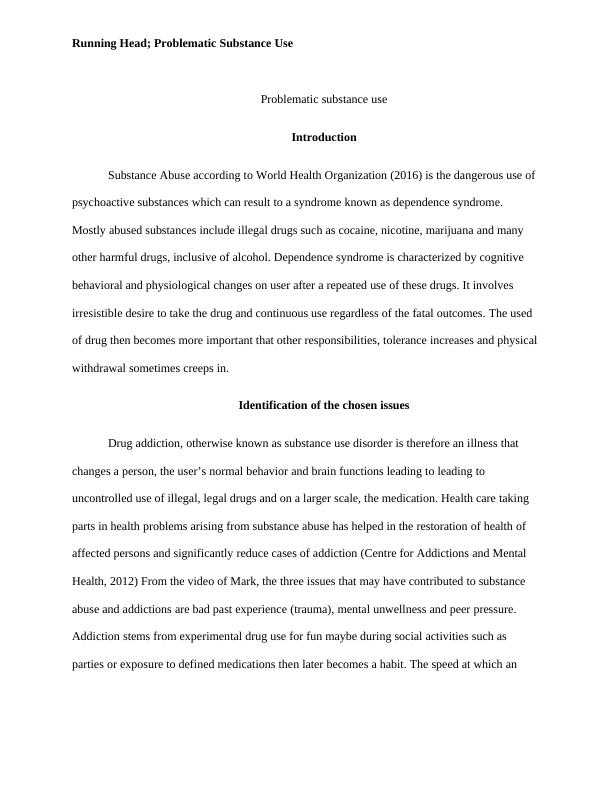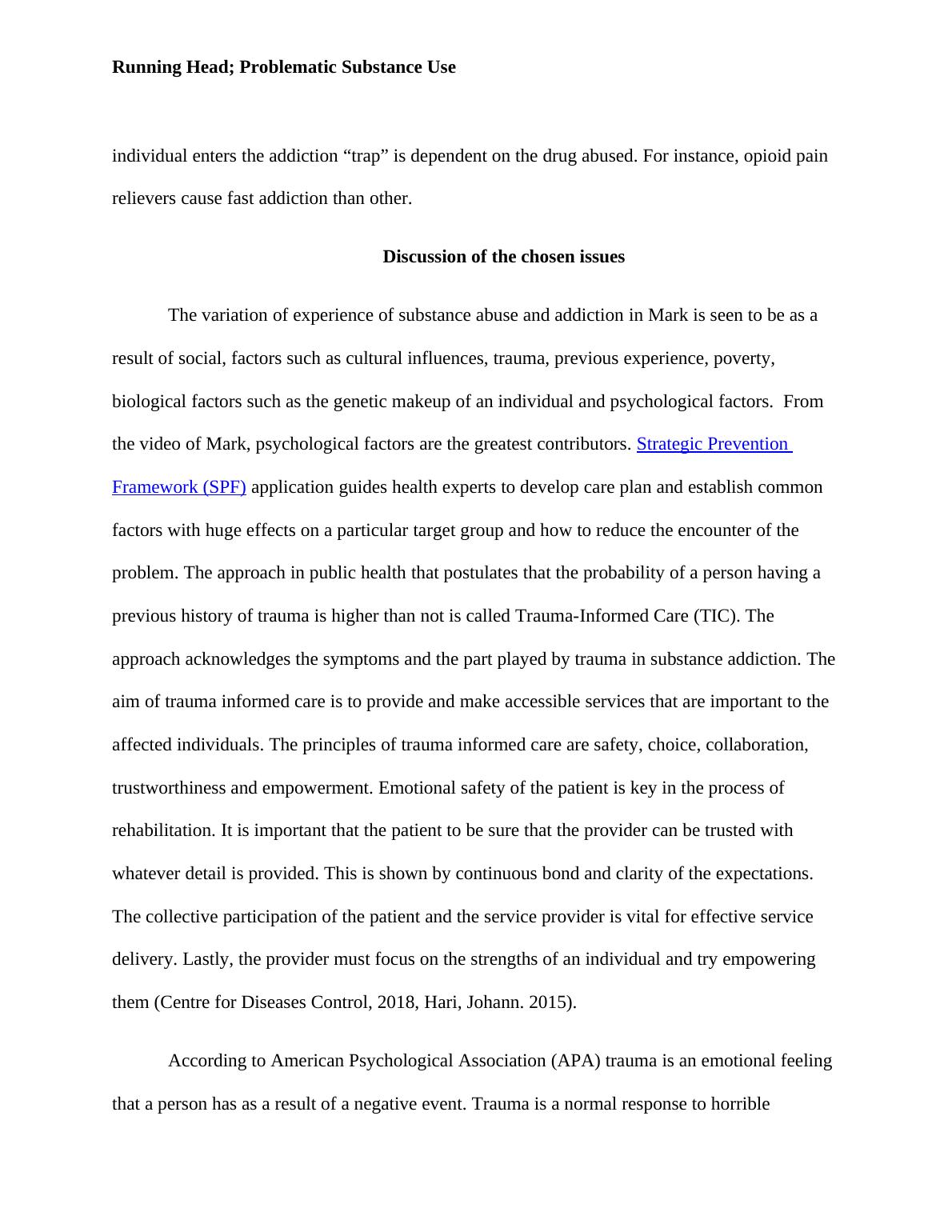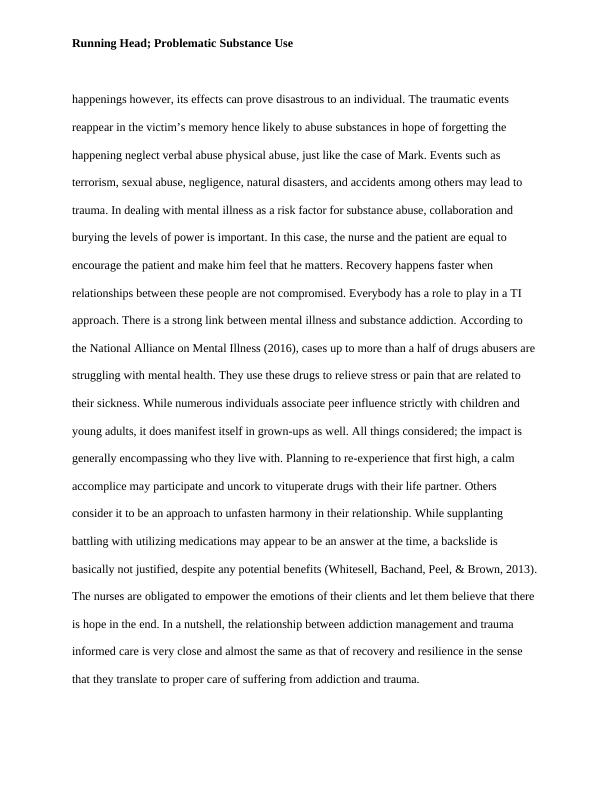Problematic Substance Use
10 Pages2854 Words90 Views
Added on 2023-01-19
About This Document
This article discusses problematic substance use, including the effects of substance abuse and addiction on individuals. It explores the factors contributing to substance abuse, such as bad past experiences, mental illness, and peer pressure. The article also emphasizes the importance of collaboration between healthcare professionals and patients in the treatment and recovery process.
Problematic Substance Use
Added on 2023-01-19
ShareRelated Documents
End of preview
Want to access all the pages? Upload your documents or become a member.
Trauma Informed Care Practice
|14
|4067
|54
Issues Demonstrated In the Video Which May Have Contributed To Problematic Substance Use and Their Discussion Using TICP
|9
|2184
|24
Illicit Drug Use: Effects of Heroin and Interventions for Management
|13
|3875
|424
Complex Trauma: Understanding and Treatment
|6
|3092
|36
Mental-Health Nursing, Case Study of Lisa
|10
|2981
|56
Mental-Health Nursing, Case Study of Lisa
|10
|2895
|34



